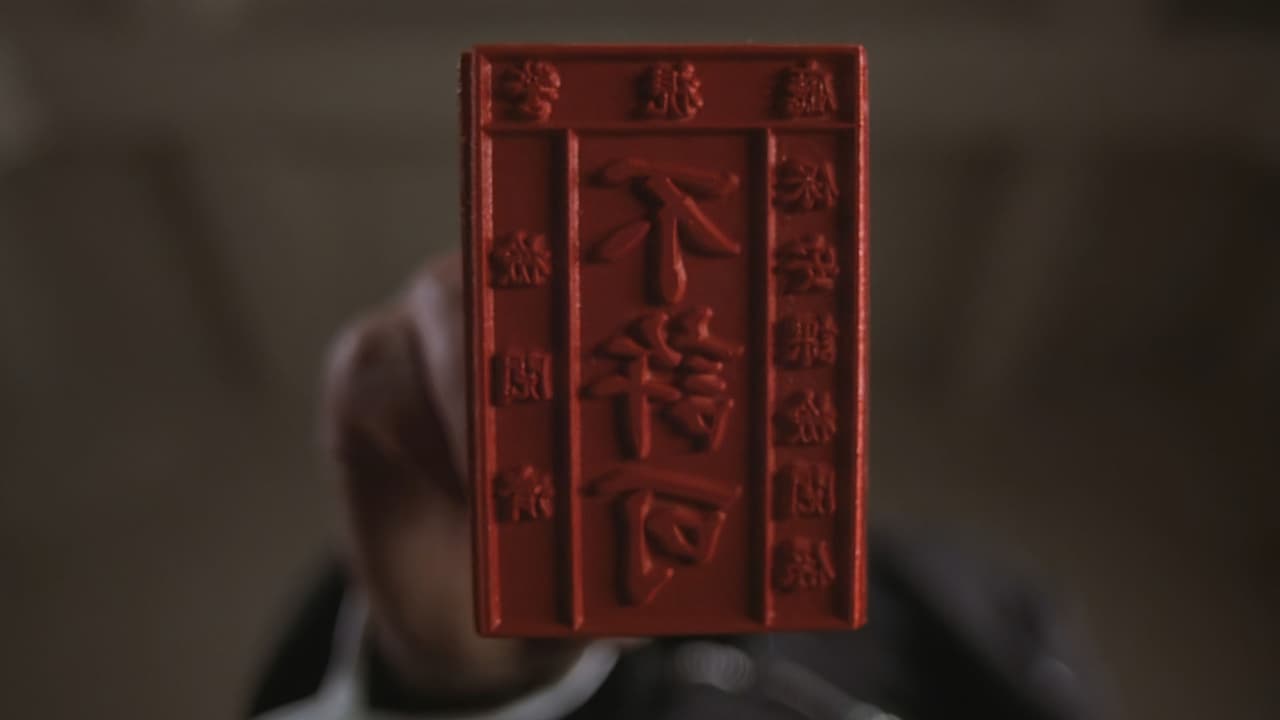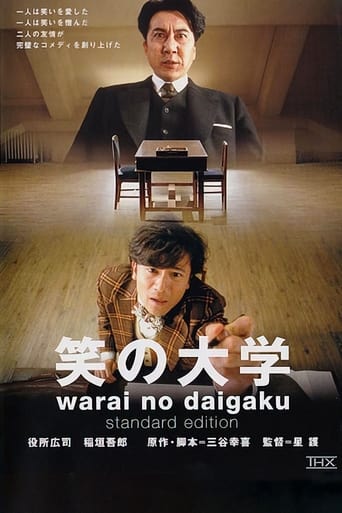

Not a film for the easily bored or sub-title phobic (hence dropping 1 star to 9/10), this film is a strictly dialogue based story between a comedic writer and his draconian censor set in pre-war Japan, where humanity is pitted against authoritarianism. As flat as that may sound, the dialogue that ensues between the protagonists is both incredibly comedic and emotional, and moreover brutally insightful into a dark period of imperialistic Japanese history that a Western audience has dwindling knowledge of. I cannot recommend this film enough, perhaps even best watchful alone, which helps the viewer empathise more personally with the embattled comedic writer pitted against the brick wall of the state. This film will remain with you.
... View MoreIn Showa era, before the World War 2, a prosecutor named Sakisaka and a dramatist named Tsubaki meets in an investigation room of the metropolitan police department. At first Sakisaka tries to prevent Tsubaki's theatrical company "University of Laughs," but as they rewrite the script, Sakisaka comes to enjoy the rewriting with Tsubaki This movie is almost composed of the conversations of the two and the situation hardly changes from the investigation room. Thus, some people may think this movie do not have passionate scene and the images are boring. On the other hand, the two actors play the contrastive characterized men. I think it great that their conversations which draws the attentions of the audience. Tsubaki has a ready wit and promptly thinks of the lines which are full of humor. The humor which Tsubaki think every time made me laugh. I was also impressed with the set of the structure. Actually they are buildings now exist, they looks like the real Tokyo in the beginning of Showa era.
... View MoreWarai no Daigaku is a comedy with a serious message. Stone-faced WWII censor Koji gives aspiring playwright Goro a run through the ringer as both men trade barbs on their way to unexpected fates. The tempo is brisk, laugh out loud moments aplenty, and the pay-off adds depth to what could easily have been an extended pun session. Koji excels as the authoritarian bureaucrat who lets his guard down to reveal thespian longings. His change from stone-faced oppressor, to collaborator, back to oppressor, is complex and perfectly timed. Unfortunately, Goro is a lightweight who manages not to offend too much by giving a tolerable performance here. His variety TV background carries him through the comedic moments, but when something heavier is called for, he simply isn't up to it. A pity, because this film could have been a classic but for that one moment of miscasting.The simple locations, and rhythmic cutting between interrogation room, street and vaudeville theatre, imbibe the film with a simplicity in terms of pace that belies the gravitas of the themes. Warai no Daigaku never insults the tragic events that it is based upon. The filmmakers manage to get humour out of a situation that, historically, must have been soul- destroying for the individuals involved. Inventively shot, well-acted, convincingly cut, this is a film to watch and go back to.
... View MoreIt is amazing and rare when a film manages to reach us and surprise us by succeeding our expectations. In my personal experience, THE UNIVERSITY OF LAUGHS is one of such films. What I loved the most about this particular film is how complex issues which throughout history have affected cultural expression can be represented and illustrated in such a fine and simple fashion.Sakisaka, a government official entrusted with creating favorable conditions for the maximum expansion of the ruling ideology, through the censorship and manipulation of messages in popular culture meets his counterpart in a humble theater script writer seeking approval for his latest project. The movie evolves and progresses as both, censor and writer work together, with and against each other to achieve their individual interests.My favorite moment is that in which Hajime Tsubaki becomes aware that his interest and passion for comedy writing, transcends the personal and collective interests of his boss, his colleagues and even his nation. He can live with the criticism and punishment offered to him by friends, peers and society at large but he cannot live without being true to himself, therefore, he is left with no option but to follow his comic nature through his gift of writing. This is the most purely political phase in the film, and it marks the decisive passage of struggle from the individual structure, to the sphere of the complex superstructures.In all, this is a beautiful and clever display of Japanese culture and worldwide struggle for freedom of speech, and a subtle reminder of how far we have come to reach the stage of cultural freedom that many of us enjoy today.
... View More